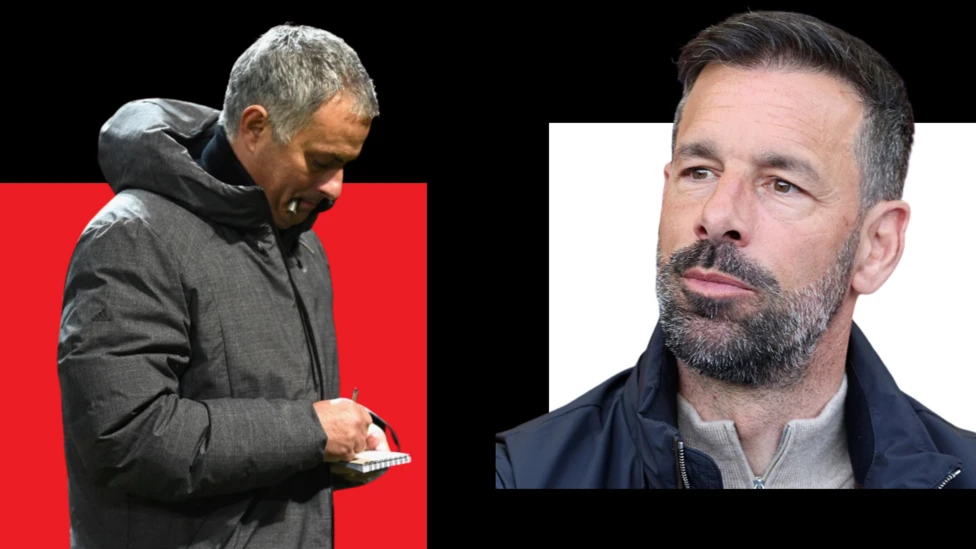
‘I’m a guy with a napkin and a pen’ – what do managers write down?
What do managers really write down during games?
The black books, the hastily scribbled notes before a corner, a glance to write down an important observation.
They can be the difference between victory or defeat, with a tactical switch having the potential to be the game-changer.
Jose Mourinho was a keen taker of notes, the ‘Special One’ advocated the importance of it during his second spell at Chelsea.
“I read the first half, I take my notes, I prepare my interventions at half-time based on the notes and where I feel I can help my players. So, I make the notes in order to be ready to make my changes,” he revealed.
Is the pen mightier than an iPad?
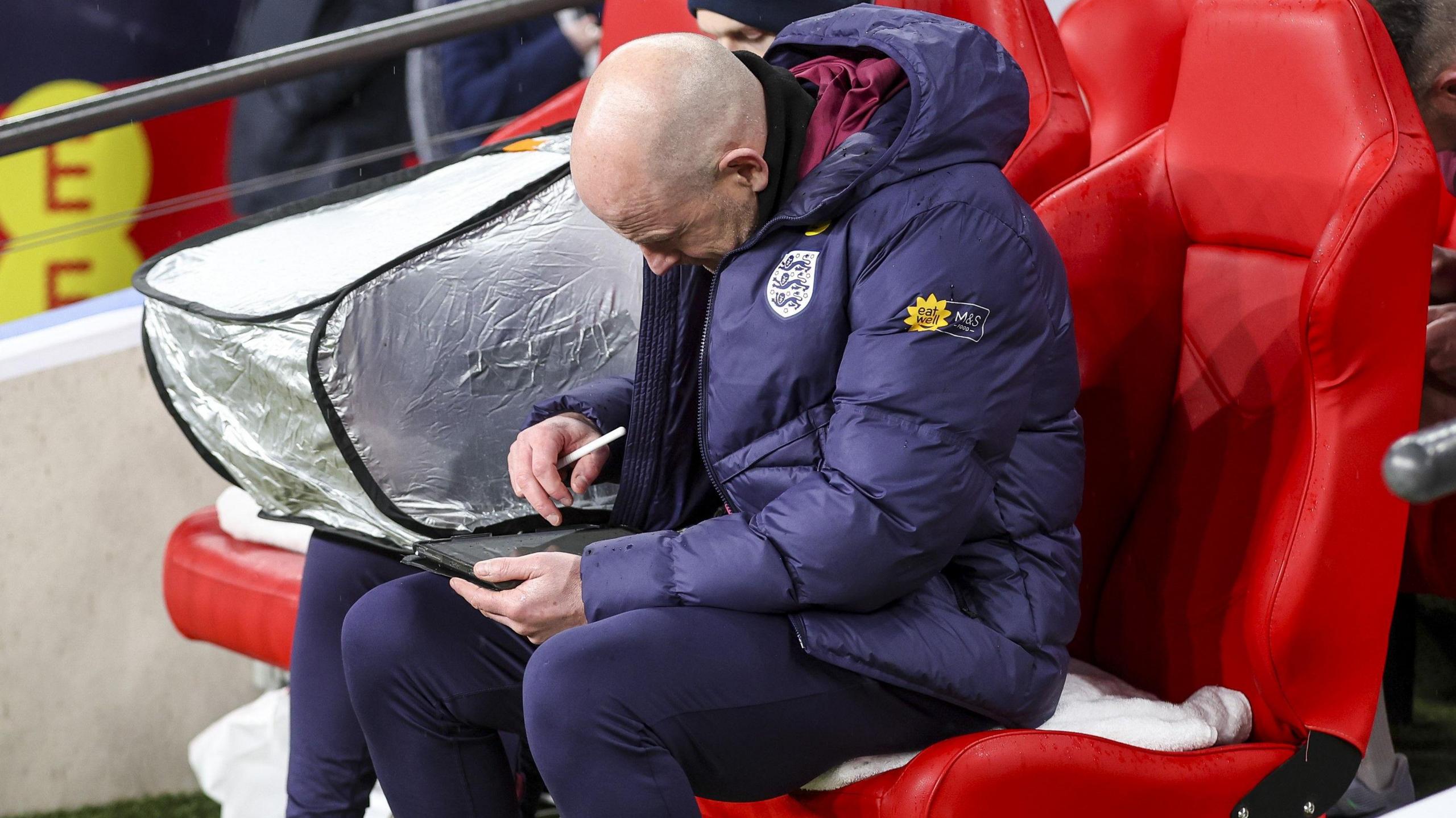
Lee Carsley prefers to work on an iPad rather than an old fashioned notebook
Rather than a notebook, England Under-21 boss Lee Carsley uses an iPad during games as he adapts with the technology.
“I’ve got a lot of pictures on there,” he said. “So, there’ll be patterns the team do, the opposition. I’m always checking that.
“Sometimes when I’m looking at it, I’m looking to see if the opposition are doing the movements I think they might do – because I know what we’ll do if they are, because we’ve already planned for it.
“Or if there’s something different, then I’ll be making notes about that. I’ll write down a lot of notes, but at half-time it’ll be three points.
“The players can remember that sort of thing. The rest of the staff will go around and do other notes that maybe the [whole] team don’t need to hear.”
During caretaker spells at Coventry, Brentford and Birmingham earlier in his managerial career, Carsley took notes in a book – but he has transitioned to screens while at the FA.
“There is definitely something about writing it down on paper,” added the former Republic of Ireland international midfielder. “I probably look back on my books more than I do on my iPad. It’s a bit easier, I can go back to the book at some point.
“It was always a pad and pen when I started. The good thing about the iPad is we’ve always got a tactics board so if any of the lads do come over, I can move it quickly and they’ll see it, rather than me writing it down.
“But I’ve always taken notes, they’re really beneficial. I probably don’t look back on them as much as I should, but we use it for the debrief after the game. So what we thought would happen, did it happen, and double-checking it.”
Tactical tweaks and sticking to principles
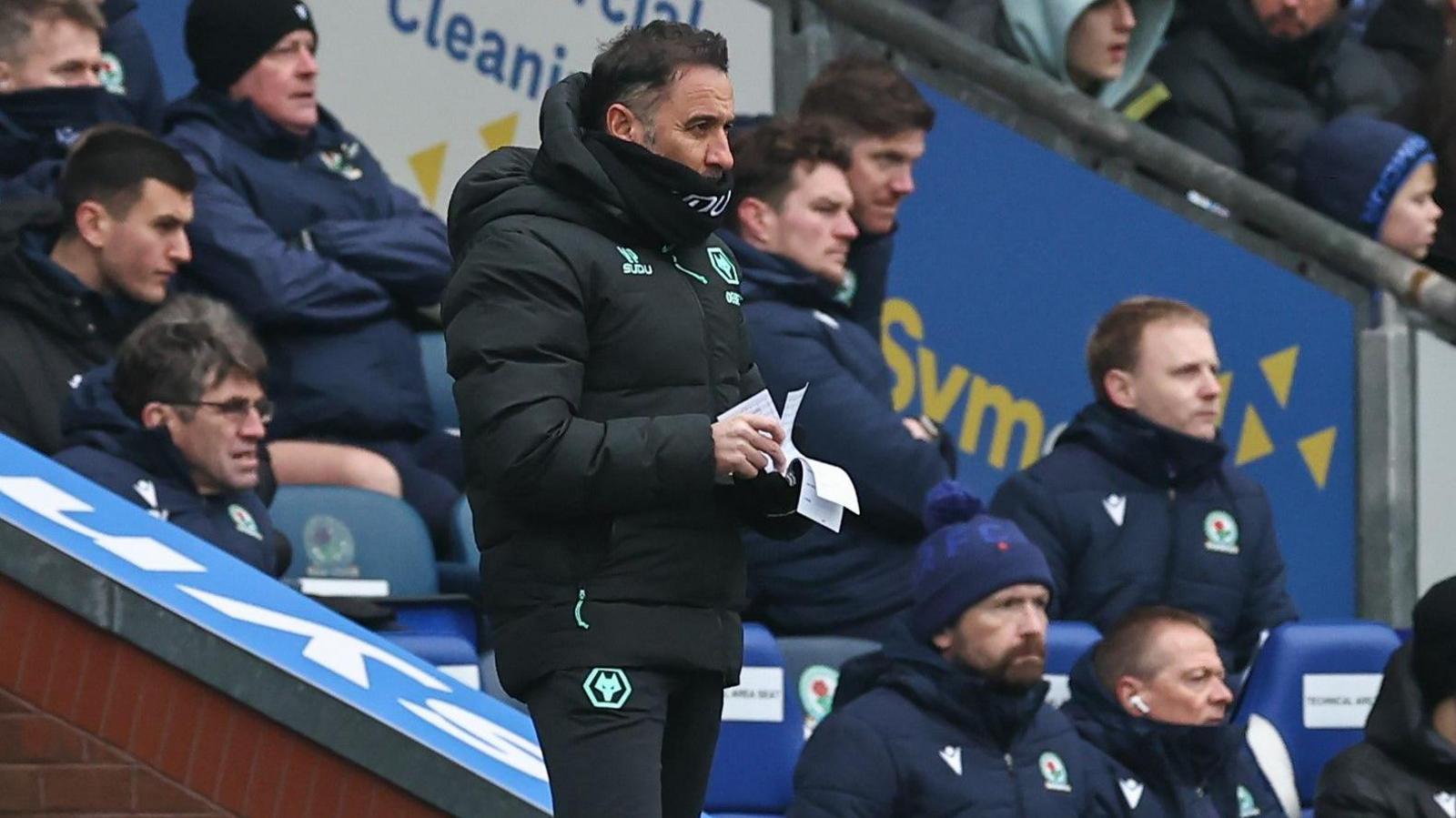
Wolves boss Vitor Pereira prefers handwritten notes over using an iPad during games
Technology has changed the way clubs are able to analyse the game and, therefore, speak to the players.
Fans in the right place will always see a club analyst, laptop in hand, sprinting down the steps in the stand and disappearing down the tunnel a few minutes before half-time.
But sometimes managers need their notes for clarity.
“For me, it’s not so much during the game or at half-time I write things down, I did write something down against Chelsea [a 1-0 defeat in March] after the triple substitution, which was when we changed structure from a 5-2-3 to a 4-4-2,” said Leicester boss Ruud van Nistelrooy.
“I wrote the names with the triple substitution, who is in and out, what the team would look like and who was going to play where. It was three subs and a change of structure, so it has to be a clear picture.
“Other than that, I make more notes during the week. You are battling for the now, but I do look at the mid-term future of the club and what is necessary.”
In contrast, Wolves head coach Vitor Pereira – who has led the club to the brink of survival after taking over in December – likes his notes during a game.
He added: “I’m a guy with a napkin and a pen! Of course I have the iPad, I do the training, the training plans, set-pieces and tactical organisation there, but I prefer to write.
“Some tactical corrections, sometimes collective, sometimes individual. Half-time is a short time. When we arrive there I don’t speak. The players come in with the adrenaline and they need to rest a bit.
“Afterwards I go to the board and I try not to have a lot of information, but the key information. Put on what I’ve written and then I explain, ‘we should do this to correct this’, nothing special.”
It’s not just at the top of the game, though, that this happens.
Stevenage boss Alex Revell follows suit. The 41-year-old, in his second spell at the Lamex Stadium, relies on the craft.
He said: “The reason I take notes is I try and keep to the principles of what we set in the game. So, for instance, if we want to build out from the back, who’s doing it well, what problems is it causing us?
“If we want to press, what’s the press looking like? So I always try to make my notes not just ad lib, but reactionary to certain situations.
“When you’re really specific with what you write about the press, build-up, transitions and you focus on things like too many turnovers, for instance, it’s so clear that is just one of your messages.
“It helps me, rather than just being just on emotion, on mistakes or certain situations in the game.”

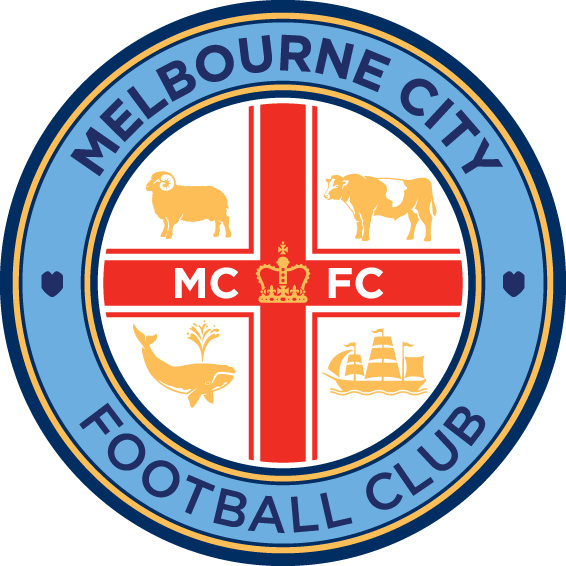
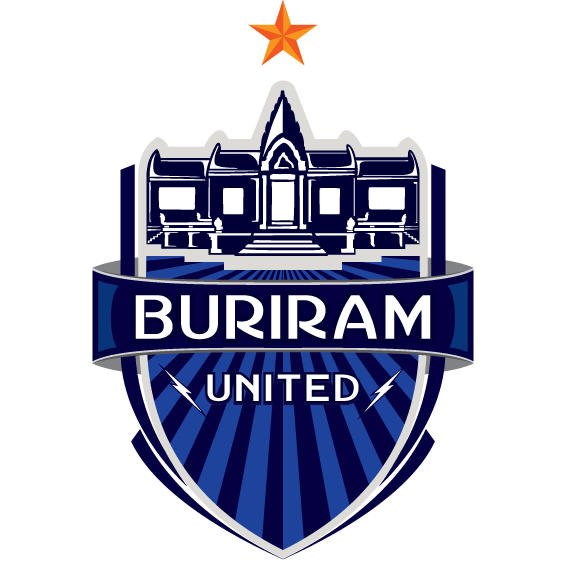























There are no comments yet. Be the first to comment!